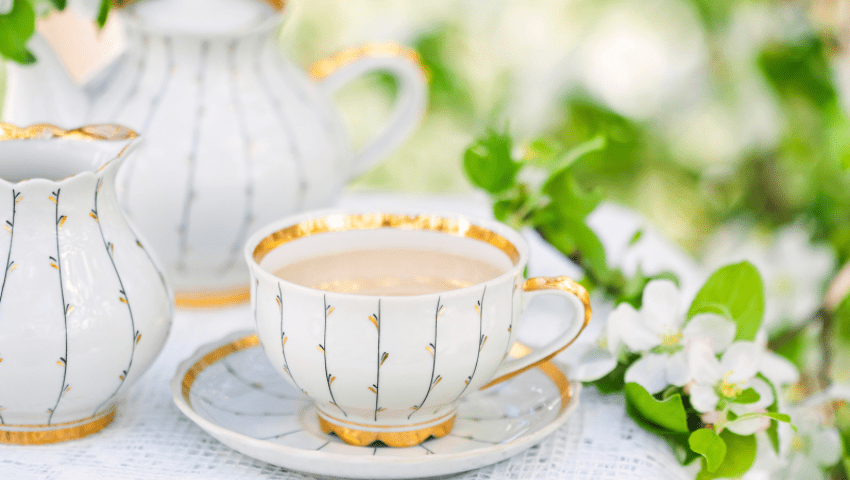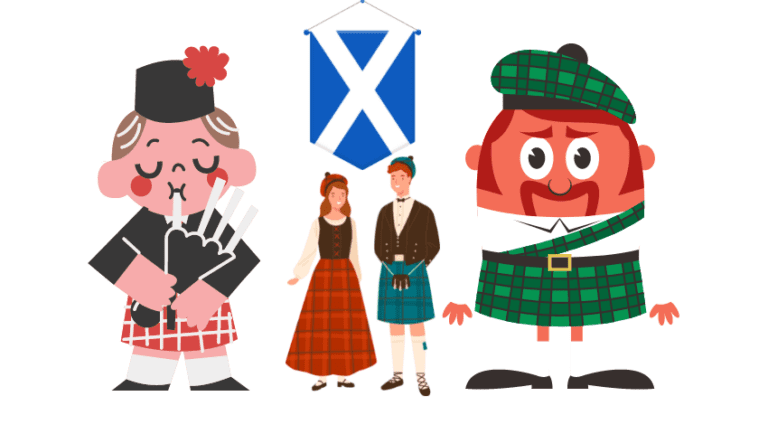The Importance Of Tea In British Culture
Ask anyone outside of the United Kingdom about British culture, and the topic of tea is sure to come up. The Uk has been a major consumer of tea ever since the 18th century, and its citizens consume an average of 1.9 kilos per year. Tea was initially consumed only by the wealthy in Europe, but it quickly gained popularity and is now consumed by people of all socioeconomic backgrounds. It is still widely recognized as an integral component of the British character and a distinctive facet of British society.
The British fondness for tea has become a vital part of the country’s image abroad. The British are well-known for their ability to brew a satisfying cup of tea, and their peculiar penchant for diluting it with milk and sugar is often cited as an example of their unique culture. The custom of having tea in the afternoon, which originated in England, has caught on in many other countries. In 2018, researchers found that “afternoon tea” is one of the main 3 things that youngsters all over the world identified with England. Although the British now identify strongly with their love of tea, this wasn’t always the case. Only a small percentage of the British population drank tea before 1700, but by the early 1800s, practically everyone did.

The Backstory
It wasn’t until the early 17th century that considerable quantities of tea arrived in England. By 1610, regular shipments of tea from China and some other Asian countries were being handled by Dutch and Portuguese merchants to European markets.
By 1657, tea was being sold more prevalently in England, in London’s existing coffee houses; however, it was known variously as Tcha, China Drink, Tay, or Tee, and became mainly sold as a treatment to cure all ailments; from fatigue and lack of vigor to general poor wellbeing and sicknesses of all sorts, and it was highly-priced. At its peak in the mid-1600s, tea sold for as much as £22 per kilogram (about £2,000 in today’s money), or £10 per pound. One may safely assume that the typical Brit at the time did not spend up to nearly £4,000 annually on their vice. Tea was reserved for the upper class, who could afford to keep it locked away in tea caddies because common people and servants back then made a total £50 a year at most.
Even so, by 1659, it could be found on virtually every London street corner. After Queen Catherine of Braganza, Charles II’s wife introduced tea drinking to the royal court in 1662, it quickly grew into more than simply a trend. At its peak around the middle of the 18th century, Canton sent about 7 million tons of tea to Europe annually, with British ships carrying nearly half of that total.
The increasing demand for this new type of luxury item did not go unnoticed by the Crown. Taxes on imported tea were as high as 119% in the 18th century. Besides encouraging widespread smuggling, the high prices ultimately resulted in the distribution of tea of questionable quality and even potentially harmful adulterants. Herbs like licorice, sloe, and willow were employed to “make up for” the significantly more costly tea leaves, and used tea leaves were mostly dried and blended in with new leaves. In 1784, the tea tariff was reduced to 12.5%, thereby ending the black market, but spoilage remained a major concern until 1875 when it was outlawed.
Wonders of Tea
Surely, it can’t be attributed solely to the flavor of tea that it has attained such widespread consumption. The British approach to tea is almost ritualistic. British place a high emphasis on the social benefits of tea; many of their most meaningful interactions take place while sharing a cup of the beverage, and they are always touched when others recall their preferred tea brewing method. Even people’s tea choices are used to make snap judgments about them. The British love their tea, and they use it for everything from breaking the ice to learning the office rumor mill to lifting a colleague’s spirits. A cup of tea put simply, can be enjoyed at nearly any time.
The British love of tea has played an important role in forming international relations and continues to play a part in the cultural ties between the UK and other countries. The incredible history of tea was the focus of an exhibition called “A Tea Journey” at the Compton Verney Art Gallery in Warwickshire. Among the earliest European accounts of tea is in a journal kept by an envoy of the Dutch East India Company, which is on display during the exhibition. He says that Chinese people “create their liquor” out of a plant called tea or cha, drinking it at social events.
Tea consumption in Britain may have contributed to some tension over the years, but it is just part of the story. It is thought to do the same thing on a global scale as it does in domestic gatherings: bring people together. It is a common practice in many cultures to welcome guests with a cup of tea, from the United Kingdom to Japan, Russia , Turkey, the Middle East, and elsewhere. The social and ceremonial significance of tea in British culture is familiar to consumers in Japan, China, India, and other key markets. The act of sharing a cup of tea with another person creates a welcoming atmosphere for conversation and offers insight into another culture.
Afternoon Qualitea Time
The question is, what happened to make a cup of tea of even more value? They followed the fad and started having tea in the afternoon. According to legend, the Duchess of Bedford (1783-1857) popularized this practice when she invited guests to join her for afternoon tea and snacks every day at 4 o’clock. Indeed, who could possibly have a grudge against her? To hold you over till supper, what could be better than a light sandwich, a sugary snack, and a steaming cup of tea?
Since the advent of modern transportation and communication, people all over the world now have ready access to a wide variety of teas with flavors and aromas that were previously unavailable to them. They’re well-versed in the benefits of various teas and choose them accordingly, whether it’s chamomile to let people sleep or green tea to boost their metabolism. While the time-honored combination of tea, milk, and sugar will undoubtedly remain the most popular for centuries to come. There was no way they could say no to sampling cuisine from all across the globe. In this vein, BRUU offers a wide variety of interesting teas; you’re sure to find a new favorite among them.






